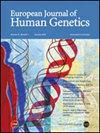Multi-locus inherited neoplasia alleles syndromes in cancer: implications for clinical practice
IF 3.7
2区 生物学
Q2 BIOCHEMISTRY & MOLECULAR BIOLOGY
引用次数: 0
Abstract
The popularity of multi-gene testing has identified more families with two or more pathogenic variants (PV) in cancer predisposition genes, also known as ‘MINAS’ (multilocus inherited neoplasia alleles syndromes). They are at risk of suboptimal treatment and management as little on this topic is known. We conducted a systematic review of published MINAS cases within cancer predisposition genes to understand their association with more severe presentations. We analysed 413 MINAS carriers, which included 33 novel cases from the Cancer Genetics Service, National Cancer Centre Singapore. Statistical tests were conducted to assess association between carrier characteristics and the number PV identified. Results suggest that MINAS carriers have more malignancies (31.7% vs 21.5% vs 10.3% %; p < 0.001), a younger median age of first cancer diagnosis (40.0 vs. 44.0 vs. 49.0 years; p < 0.001) and an early onset of cancer (defined as <5% PV-associated cancer risk at age of diagnosis) (24.9% vs 7.7% vs 4.7%; p < 0.001) compared to monoallelic and non-carriers. We also studied the association of clinical characteristics by the dominant or recessive nature of PV harboured, where more dominant-dominant (D-D) carriers reported multiple malignancies (34.0%), compared to dominant-recessive (D-R) (23.9%) and recessive-recessive (R-R) carriers (20%;) (p = 0.051). Our findings suggest that MINAS carriers are prone to more and younger malignancies and the dominant or recessive nature of PV within double carriers can affect clinical presentation. We suggest a framework to guide management based on the dominant or recessive nature of PV within double PV carriers.

癌症中的多位点遗传性肿瘤等位基因综合征:对临床实践的影响。
多基因检测的普及已经发现了更多的家族在癌症易感基因中有两个或多个致病变异(PV),也被称为“MINAS”(多位点遗传性肿瘤等位基因综合征)。由于对这一主题知之甚少,他们面临着治疗和管理不理想的风险。我们对已发表的带有癌症易感基因的MINAS病例进行了系统回顾,以了解它们与更严重症状的关联。我们分析了413名MINAS携带者,其中包括来自新加坡国家癌症中心癌症遗传服务中心的33例新病例。进行了统计检验,以评估载体特征与PV鉴定数量之间的关系。结果表明,MINAS携带者的恶性肿瘤发生率更高(31.7% vs 21.5% vs 10.3% %;p
本文章由计算机程序翻译,如有差异,请以英文原文为准。
求助全文
约1分钟内获得全文
求助全文
来源期刊

European Journal of Human Genetics
生物-生化与分子生物学
CiteScore
9.90
自引率
5.80%
发文量
216
审稿时长
2 months
期刊介绍:
The European Journal of Human Genetics is the official journal of the European Society of Human Genetics, publishing high-quality, original research papers, short reports and reviews in the rapidly expanding field of human genetics and genomics. It covers molecular, clinical and cytogenetics, interfacing between advanced biomedical research and the clinician, and bridging the great diversity of facilities, resources and viewpoints in the genetics community.
Key areas include:
-Monogenic and multifactorial disorders
-Development and malformation
-Hereditary cancer
-Medical Genomics
-Gene mapping and functional studies
-Genotype-phenotype correlations
-Genetic variation and genome diversity
-Statistical and computational genetics
-Bioinformatics
-Advances in diagnostics
-Therapy and prevention
-Animal models
-Genetic services
-Community genetics
 求助内容:
求助内容: 应助结果提醒方式:
应助结果提醒方式:


